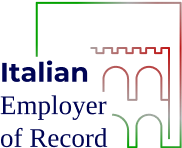27 December 2024
Expat guide: things to consider when moving as an employee to Italy
Italy, celebrated for its rich cultural heritage, strategic location, and strong talent pool, has long attracted professionals eager to advance their careers. Whether you’re relocating for personal growth, family reasons, or to support a company’s expansion, understanding Italy’s legal, tax, and social systems is essential. Early preparation can help you settle in smoothly, focus on your work, and enjoy all Italy offers—from exquisite cuisine to iconic art and architecture.
Moving to Italy as an employee involves several considerations, from obtaining the correct work permit to managing taxes and choosing the right healthcare coverage. An Employer of Record (EOR) in Italy can play a vital role in helping foreign professionals address these administrative and legal challenges, allowing you to focus on starting your new life and career confidently.
Tax considerations
Italy’s tax system is progressive, meaning the more you earn, the higher your tax rate. Employees face deductions for income tax, social contributions, and sometimes regional taxes that vary by location.
Understanding your residency status is crucial, as spending more than 183 days a year in Italy typically makes you a tax resident, affecting how your global income is taxed.
Key points to consider include:
- Progressive income tax: Higher incomes incur higher rates.
- Social contributions: Both you and your employer contribute to funds for pensions, healthcare, and other benefits.
- Residency status and foreign income: Spending significant time in Italy may bring your worldwide earnings under Italian tax rules.
- Allowances and credits: You may be eligible for deductions that reduce your tax liability.
If you’re new to Italy, reviewing tax deadlines and exploring possible deductions is wise. Consulting an Italian tax advisor can help you understand local laws and ensure compliance. The Italian Revenue Agency (Agenzia delle Entrate) website is useful for official guidance and clarifications.
An Employer of Record supports you by calculating the correct tax withholdings and ensuring all required filings are submitted on time, so you’re not caught off guard by unfamiliar rules or deadlines. They also help clarify how residency status affects your taxes and which deductions or credits you might be eligible for, allowing you to stay compliant while potentially lowering your overall tax burden.
Work permits and residence requirements
Your eligibility to live and work in Italy depends on your nationality. EU/EEA and Swiss citizens generally have fewer hoops to jump through, often needing only to register with local authorities. Non-EU/EEA nationals usually require a work visa or permit, making early research vital. Determine which category applies to you, and gather all the necessary documents—proof of employment, qualifications, and in some cases, language skills—well before your intended start date.
For example, a Canadian marketing specialist hired by a Milan-based firm found the visa application process confusing. Her employer’s EOR partner broke down each requirement into simple steps, offered sample documents, and ensured she booked her embassy appointment early. She later said the EOR’s guidance felt like having a coach by her side, turning what could have been a stressful experience into a manageable one.
You may notice that arriving on time to meetings is generally appreciated, reflecting respect for everyone’s schedule. Yet many Italian colleagues also value chatting about weekend plans or local events over a quick espresso.
I once knew an expat from the UK who found that these brief coffee breaks gave her a chance to practice a bit of Italian and earned her new teammates’ goodwill and trust. This blend of punctuality and personal connection can be the key to forging strong professional relationships in Italy.
Healthcare and insurance
Italy’s public healthcare system, Servizio Sanitario Nazionale (SSN), is known for providing comprehensive, low-cost medical services to residents. Many foreign professionals find the SSN sufficient for most of their needs. However, some prefer supplemental private insurance for more immediate access to specialists, shorter waiting periods, or a broader choice of providers.
An Australian HR manager who joined a Florence-based design company felt uncertain about whether to rely solely on the SSN. Her employer’s EOR partner explained the differences between public and private options, sharing anecdotes from other expats who balanced public coverage with a modest private plan. Understanding these choices eased her mind, allowing her to pick a healthcare approach that matched her expectations and lifestyle.
Housing and settling in
Italy’s housing market varies widely by region. Urban hubs like Milan and Rome often have competitive rental markets, while smaller towns may offer more affordable options. Many newcomers begin with short-term rentals, giving themselves time to explore neighbourhoods, gauge commute times, and find a setting that feels like home.
Landlords typically require proof of employment, references, and a deposit. To ease this process, some expats consult colleagues or others who’ve relocated recently, learning which districts are both convenient and welcoming.
An EOR can also support by verifying employment details, making landlords more confident in their prospective tenant’s stability and ensuring the search for accommodation goes more smoothly.
You might find it helpful to join online communities or expat forums where international professionals share their experiences of working and living in Italy.
For example, you might start by exploring resources on InterNations Italy, where international professionals regularly share insights on local job markets, housing, and social events. The Expats in Milan Facebook Group and Expats in Rome Facebook Group are also active communities, helping newcomers ask questions, exchange recommendations, and arrange informal meet-ups.
Opening an Italian bank account
Managing finances in Italy generally starts with opening a local bank account. Most banks require proof of identity, a tax identification number (codice fiscale), and a local address. Some newcomers worry about this step if they lack Italian credit history, but a letter from your employer (provided through your EOR) can reassure the bank of your stable income.
After setting up your account, you’ll have access to online banking, direct debits for rent and utilities, and convenient ways to track expenses. Getting this done early helps you settle into your daily routine faster—no more fumbling with foreign cards or dealing with international transaction fees.
Simplifying your move with an Employer of Record in Italy
Relocating to Italy involves understanding tax rules, managing work permits, securing appropriate healthcare, and managing financial logistics like opening a bank account. An Employer of Record in Italy acts as a partner, providing expert guidance on everything from compliant employment contracts to ensuring that taxes and social contributions are handled correctly.
This support allows you to concentrate on your professional goals and personal interests—exploring local markets, enjoying Italian “aperitivi” with colleagues, and soaking up the cultural richness around you.
Relying on an EOR means starting your chapter in Italy well-prepared, with fewer administrative worries. Free from the burden of legal paperwork and unsure steps, you can direct your energy toward thriving in a country known for its innovation, style, and heritage. Embrace Italy’s unique rhythm, connect with its people, and make the most of every opportunity that comes your way.
Get in touch with us to discover how our services can help lighten the load of your relocation. With that support in place, you can invest your energy in what truly matters—connecting with your new colleagues, exploring your neighborhood, and steadily advancing toward your personal and professional aspirations.



